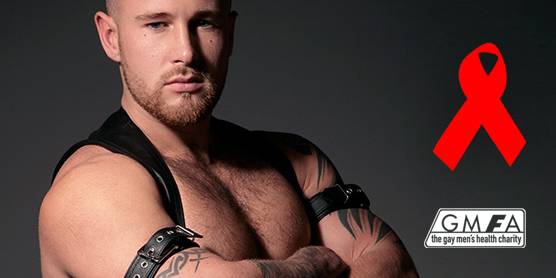World AIDS Day: Stigma creates fear and fear can hurt us all

from
Recon News
21 December 2016
By GMFA's Interim CEO, Ian Howley
[This article originally appeared in FS Magazine, produced by GMFA]
Do you think the only people who are affected by stigma are HIV-positive people? Nope. One of the biggest problems with stigma is the effect it has on gay men who don't test for HIV. About 17% of gay men who have HIV don't know they have it. Why? Well, for many reasons:
• Some may not think they have put themselves at risk so don't bother to test for HIV.
• Some may have taken risks but think they don't have HIV because they don't have any symptoms yet.
• And others think they may have HIV but are too scared to find out, so they don't test.
Fear is driving these men, who would rather not know, away from testing and potentially from life saving treatment. Getting tested doesn't change your HIV status. It just makes you aware of what it is.
Why is fear a bad thing?
Undiagnosed gay men are the most infectious. These men account for nearly 80% of new infections. So around 17% of positive men are accounting for 80% of new diagnoses. If there was less fear associated with HIV then it would be easier for people to test.
And if people test and find out they are HIV-positive they will be put on medication which will suppress the virus, and eventually they will become undetectable. This means the chance of them passing on HIV to other people is very slim.
So by stigmatising HIV-positive men we are creating barriers that prevent our community from ending HIV transmissions once and for all.
Do your bit to end stigma
Treat HIV-postive men exactly how you want to be treated.
If someone tells you they are HIV-positive, the chances are they are undetectable and unlikely to pass on the virus. They will most likely be on medication and many men with HIV look after themselves better than other guys.
Don't ask them how they 'got it'.
The answer is likely to be: "I had sex". Asking someone how they became positive is stigmatising as it's making them feel like they are bad for having sex. You wouldn't ask someone how they got diabetes, so don't ask how they became positive. Just understand. Ask them why they are telling you.
If the person wants to share their story with you, they will.
Clean up your language
Words can be hurtful and as many of the HIV-positive men in the feature stated, they feel angry, and hurt, when people use terms like 'clean', 'DDF' and 'HIV-free' on dating apps and the like. So do the following:
• Drop 'Are you clean?'
• Drop 'Drug and disease free'.
• Drop 'HIV-free'.
If you want to mention that you're HIV-negative, just say that, and include the date you were last tested. For example: 'Neg. Tested 27/11/2015'.
A simple change in attitudes within our community can go a long way to overcoming stigma.
SHARE

